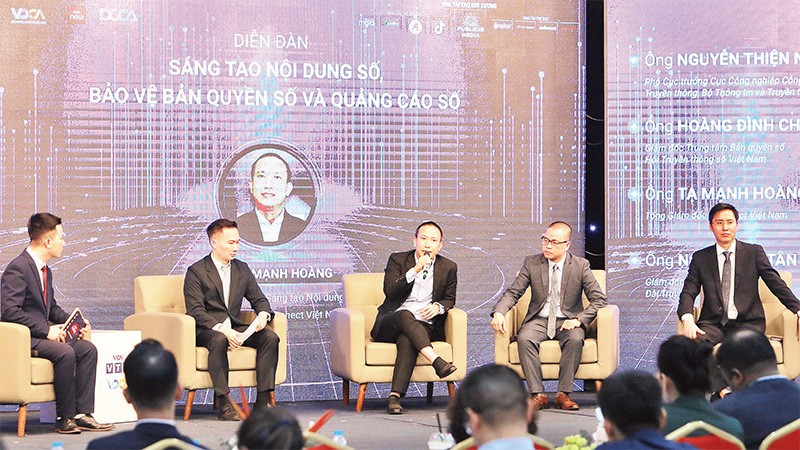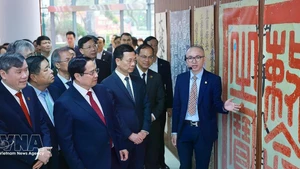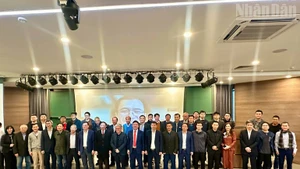In recent time, many conferences and forums have been organised for management agencies, businesses, and individuals involved in digital content creation to find solutions to promote sustainable development in harmony with the trends of the world.
In the past five years, digital content products have been increasingly diversified, not only including news, entertainment, education, and sports in newspapers and on television but also in the digital space. Digital content creation now includes content production and monetisation on free cross-border platforms (YouTube, Facebook, TikTok); online music, movie, and TV show businesses (Spotify, Amazon Music, Netflix); providing images, videos, paintings, design drawings, and online education; and publishing online games. However, activities in this field often generate unprecedented problems and inadequacies in Vietnam, even on a global scale, especially copyright protection.
As noted by the Vietnam Digital Communication Association (VDCA), as the number of people consuming digital content increases, the number of unauthorized users of pirated content also increases. The VDCA estimates the number of people consuming pirated video content in 2022 is 15.5 million, resulting in a loss of nearly 350 million USD, accounting for 18% of legal video industry revenue. By 2027, this number could increase to more than 19 million people, resulting in a loss of more than 450 million USD.
Chairman of the Digital Content Creation Alliance, Ta Manh Hoang shared about the opportunities, challenges, and experiences for Vietnamese digital content products to overcome difficulties and conquer international markets.
Ta Manh Hoang said that the development of cross-border platforms has opened a flat world, allowing digital content creators to reach the public more easily.
In Vietnam, there are currently 66.2 million Facebook users, 63 million YouTube users, 10.3 million Instagram users, 49.86 million TikTok users, and about 2 million Netflix subscribers. The global digital content industry has also experienced rapid development in many fields such as media, technology, design, art, entertainment. In this flow, Vietnam has many advantages, such as: such as young human resources with fast access to technology and high creativity.
The global digital content industry has also experienced rapid development in many fields such as media, technology, design, art, entertainment. In this flow, Vietnam has many advantages, such as: such as young human resources with fast access to technology and high creativity.
Chairman of the Digital Content Creation Alliance
Ta Manh Hoang
However, most digital content in Vietnam is still spontaneous, with many potential dangers and risks. User awareness of digital content products has not been enhanced, so it is easy to be drawn into negative products that do not bring much value, or violate copyright.
The rapid development of digital content types also causes authorities and businesses and creative communities to struggle when the legal framework has not been completed to protect and enhance the position of businesses in the international arena.
The most recent case is the fact that Sconnect Vietnam's Wolfoo cartoon character set was disputed by foreign enterprises for intellectual property rights, causing considerable damage.
Facing this situation, Ta Manh Hoang suggested that it is necessary to strengthen exchanges and cooperation between domestic and international businesses in the same field; attend exhibitions and fairs in the same international field; approach and learn from modern management models and new technologies; and recruit, foster, and develop a team of experts. On the other hand, domestic individuals and businesses also need to connect with business support organisations, consult development policies with state agencies.
According to Deputy Director of the of the Authority of Information and Communications Technology Industry (under the Ministry of Information and Communications) Nguyen Thien Nghia affirmed that in the coming time, it is necessary to promote "Made in Vietnam" products, focusing on content produced in Vietnam and by Vietnamese people when exporting digital content to the world.
Sharing about the development and application of AI (artificial intelligence), Nguyen Thien Nghia said that when there are platforms like ChatGPT, the content industry will have a similar platform. As such, there should be clear policies on copyright of content produced by those platforms.
In addition, many experts from the Digital Copyright Centre, Viettel Cyberspace Centre, representatives of Sconnect Vietnam, VTV, and VTC television stations also shared their experiences and proposed solutions to support individuals and digital content creation enterprises catch up with the trend. Accordingly, it is necessary to change the mindset to create diverse content and valuable news that is educational and suitable for customers' needs, as well as suitable for digital devices and digital spaces.
Recently, in order to contribute an effective tool to solve this problem, the Digital Copyright Centre of the Vietnam Digital Communications Association has built and officially put into operation the Digital Copyright Axis system to enhance copyright protection and digital content development. The platform offers eight main services, including copyright registration, content distribution, and infringement detection solutions for individual and business content creators.
















